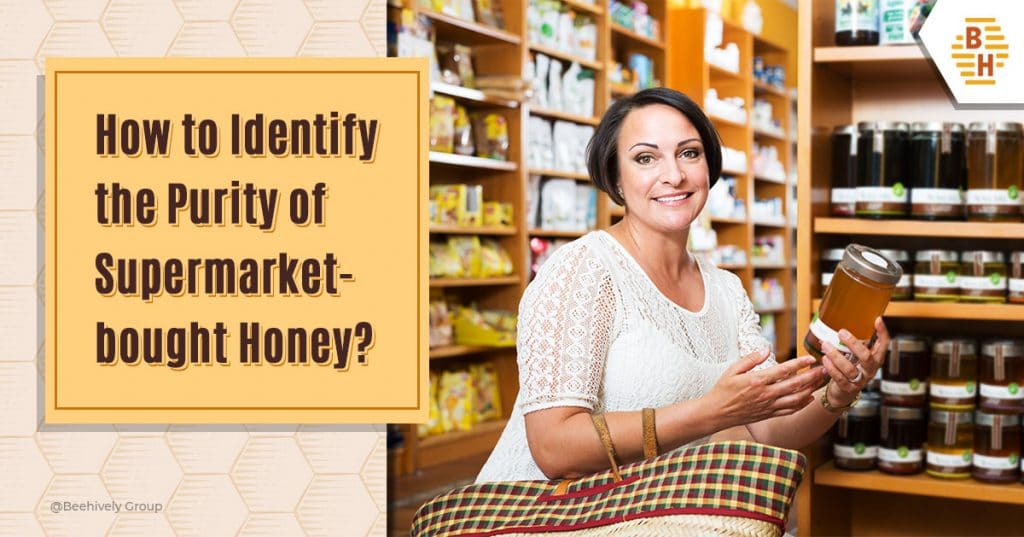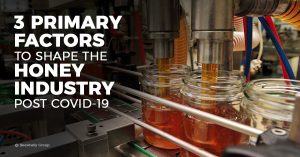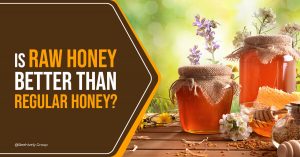Honey has long been propagated as a superfood in ancient medicinal literature across civilizations. For generations, it has been known to contain healthy plant compounds and is renowned for its miraculous medicinal properties. Honey prepared by bees comes with a lot of great vitamins (typically B and C), lots of antioxidants, a few minerals, and pollen.
Till date, some people believe that honey bought from anywhere is pure, regardless of how it has been harvested and processed. However, to consume the real goodness of honey, one must know that honey is truly beneficial and healthy in its most natural state.
When it comes to buying honey from supermarkets or retail stores, it can be difficult to choose honey just by reading labels depending on its purity and country of origin. Many honey brands have been filling the shelves in the market by falsely claiming their honey jars as pure, and unadulterated.
Benefits of Raw Honey You are Missing Out in Processed Honey
Raw Honey contains a wide variety of nutrients including 22 amino acids, 31 different minerals and a wide range of vitamins and enzymes.
The most impressive characteristic of raw honey is that it is made up of nearly 30 types of bioactive plant compounds called polyphenols that act as antioxidants. These antioxidants have been linked with true health benefits, including a reduction in inflammation, and a lower risk of heart diseases, and certain cancers. On the other hand, most store-bought honey jars contain fewer or even negligible antioxidants due to processing and ultra-filtration methods.
To put it in perspective, a study evaluated the antioxidants present in raw against processed honey bought from a local market. It was found that the raw honey contained up to 4.3 times more antioxidants than the store-bought regular honey.
Beware of Honey Laundering!
The methods of processing raw and regular honey are completely different. Natural honey is only strained before it is transferred in a jar or bottle to sell, thus it retains most of the beneficial nutrients and antioxidants that honey naturally contains. On the other hand, regular or most store-bought honey undergo a variety of processing that eliminate most beneficial nutrients like pollen and reduce the level of antioxidants present in honey.
According to food and health experts, several users become a victim of commercial honey adulteration largely with sweeteners, unrefined sugar, or corn syrup. Thus, selling impure, adulterated honey as real/pure honey is now considered ‘honey laundering’.
How to Choose Raw Honey from the Shelves of a Supermarket?
- One must look for honey that still contains pollen not only for its health benefits but also because honey with its pollen can be traced. As per a study, it was found that 75 percent of honey jars sold in big-box retailers and grocery stores had no pollen in them. While most of the honey bought at farmer’s markets and natural grocers carried pollen. One can, thus, either buy raw honey from local grocers, beekeepers or from brands that source honey directly from the hives of beekeepers.
- One can look for key labels like – ‘Raw Honey’ that is unprocessed, and unheated, with its live enzymes preserved. Also, it is important to check the certifications acquired by the honey brand which may include – Food Safety and Standards Authority of India (FSSAI), International Organization for Standardization (ISO), and more.
How to Be Sure That the Honey You Bought is Raw?
- Raw honey is found in the market in liquid as well as creamy form. Liquid raw honey may crystallize or solidify over time.
- The color of raw honey can be of various shades of yellow, brown, and even white depending upon the type of flowers the bees have been feeding on.
- Lastly, unless one can find the term raw on a bottle/jar of honey, it can be assumed that the honey is processed.
Honey by BeeHively is organically sourced, unprocessed, and unpasteurized. To procure honey, BeeHively collaborates with tribal beekeepers and apiculturists from across Asia and delivers natural and organically sourced raw honey to customers around the world.




